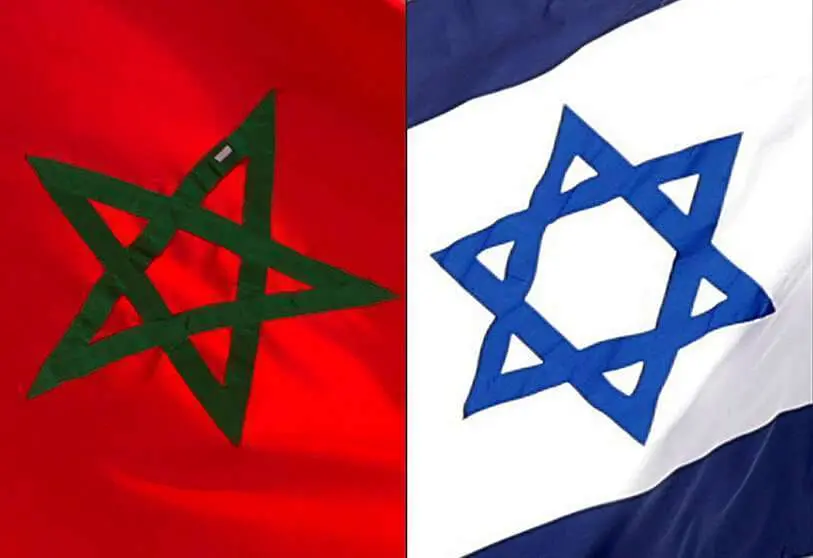Israel's agreement with Morocco: from lamenting the darkness to shine light

According to Swiss watchmakers, even a broken clock is right twice a day. It would be misguided to relativise the geopolitical scope of the three-way agreement facilitated by Trump between Morocco and Israel; It would also be stingy to deny Rabat's diplomatic ability to position itself by its own agency as a state of considerable strategic weight, capitalising on the thread of historical relations between the Alaouite country and the Hebrew people, which date back to the Jewish exodus following the capture of Jerusalem by the Roman legions and the Sephardic diaspora following the Spanish expulsion of 1492. When the state of Israel was created in 1948, and Morocco became independent from France in 1956, many Jews living in Morocco - where they had found refuge during the Shoah - settled in the new country, so Israel has a large population with Moroccan roots, which at the time facilitated the opening of liaison offices that did not stop operating even during the time of the second intifada.
These unofficial relations enabled the intelligence services of both countries to collaborate and do each other mutual favours, such as when Mossad alerted King Hassan II to the plot Mehdi Ben Barka was plotting against him, or when the Moroccan security services did not prevent Mossad from listening to the meetings of Arab leaders in Casablanca before the Six-Day War. Since then, Israel has cooperated with both the Central Bureau of Judicial Investigation and the Directorate General of Studies and Documentation, furthermore providing intelligence and surveillance technologies and helping to organise the Moroccan secret services, in addition to putting pressure on the US to provide military assistance to Morocco, as a reward for its intercession with Egypt by facilitating the signing of the Camp David Accords in 1978.
The unprecedented commitment promoted by Donald Trump is therefore not the result of opportunism but of patient work involving leading figures in the three countries concerned, a task in which the Hebrew community in Morocco has played a prominent role, under the guidance of Serge Bardugo, royal emissary and leader of the Moroccan Jewish community, who was commissioned years ago by the King of Morocco to organise a working group with prominent Israeli and American Jewish officials, through meetings frequently attended by Yassin Mansuri, a person of confidence of King Mohammed VI and responsible for the management of the Moroccan intelligence services, and his Israeli counterpart Yossi Cohen.
Following Donald Trump's arrival at the White House, and with the appointment of his son-in-law Jared Kushner as head of the Middle East Peace Plan, Serge Bardugo took advantage of his proximity to the Moroccan Yosef Pinto, rabbi and spiritual adviser to Jared Kushner and his wife Ivanka, to gain direct access to the very centre of power in Washington. The agreement was gradually reached with the involvement of the Jews, Avi Berkowitz, assistant to the president and special representative for international negotiations, and the Moroccan food industry magnate Yariv Elbaz, the latter of whom is very close to Morocco's foreign minister, Nasser Bourita. On the Israeli side, Ram Ben-Barak-executive director of the Mossad, Yariv Elbaz's business partner, and a person of the utmost confidence of Netanyahu-finished shaping the proposal, of which Jared Kushner was aware at all times thanks to the participation of Jason Greenblatt, an American Jew of Hungarian origin, special representative for international negotiations and legal director of the Trump group of companies.
Naturally, the announcement of the agreement between Rabat, Tel Aviv and Washington is more a starting point than a final goal. First of all, because it will force the new US administration to work hard to get the African Union on its side, convincing its members that the time for the referendum on self-determination under the Baker Plan is over and giving time to heal the wounds of the affront inflicted by turning the UN resolutions into a dead letter. All this may be helped by: an imminent establishment of relations between Israel and Oman, a country that has been quick to welcome diplomatic normalisation between Morocco and Israel, as it had previously done with respect to the Emirates and Bahrain; and the potential success of talks between Israel and Niger to normalise relations, while Morocco is redoubling its mediation efforts in Libya in pursuit of regional stability and to counterbalance Algerian rivalry, aware that by becoming Washington's indispensable partner in North Africa, Algeria's margin for action is radically restricted, making Polisario's aspirations of independence even more unfeasible, especially if it chooses to continue to lament the darkness and choose the wrong travelling companions to embark on a forward flight, with which it can only lose what it could gain through possibility and negotiation. As activist Margaret Eleanor Atwood said, "War is what happens when language fails".

